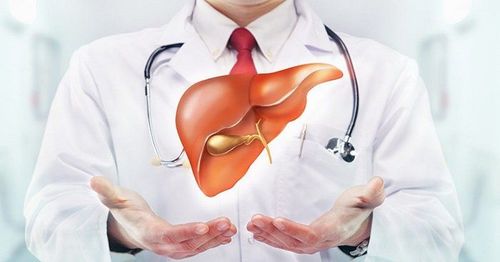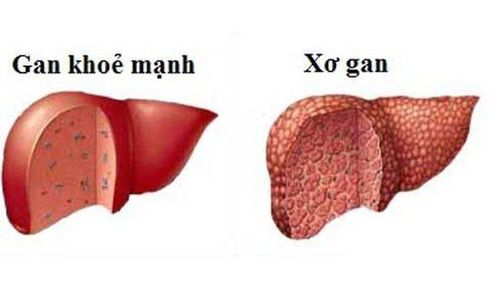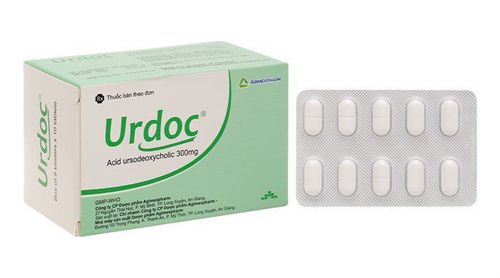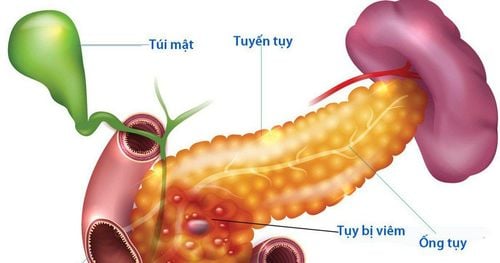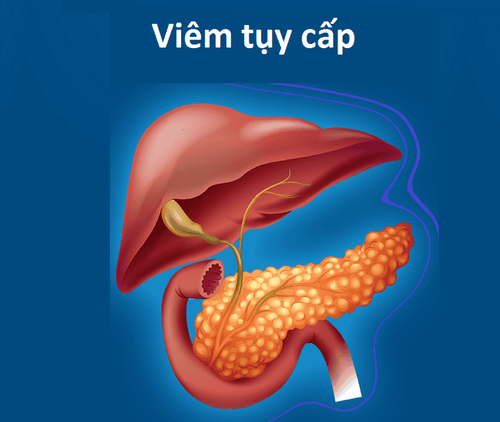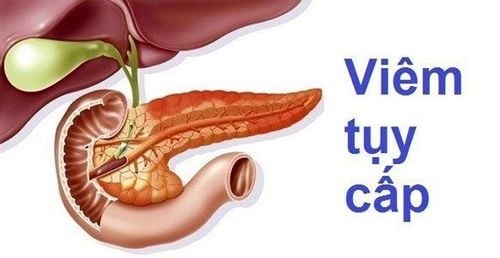This is an automatically translated article.
Many patients live with gallbladder sludge without knowing until they face the pain. So can gallbladder sludge stones be cured, how to prevent?
1. Overview of gallbladder sludge
Gallbladder sludge are granular solids, small in size, scattered and scattered in the gallbladder. The composition of gallbladder sludge includes cholesterol, calcium bilirubinate, mucus and bile salts. Over a long period of time, gallbladder sludge can deposit and form cholesterol stones in the gallbladder, also known as gallstones.
Usually, many people do not realize they have gallbladder sludge until they have pain. However, mudstones can also dissolve on their own or be squeezed out by the gallbladder and pushed out. Gallbladder sludge if left untreated can lead to gallstones, acute pancreatitis, ...
Anyone can get gallbladder sludge, however, cases are at higher risk, that is. are: Pregnant women, diabetics, people who are obese or obese but lose weight too quickly, patients who have to eat intravenously, use lipid-lowering drugs and other drugs for a long time , ...
2. Why do gallbladder sludge stones?
Gallstone sludge is thought to be caused by the following causes:
Pregnancy: During pregnancy, the gallbladder is under a lot of pressure due to the growing fetus and compressing the gallbladder. However, the condition affecting the gallbladder goes away after birth. Losing weight too fast, unhealthy diet: An unhealthy diet, forcing weight, losing weight too fast causes the body to burn energy from fat, causing the liver, pancreas, bile to work harder, liver produce more cholesterol, increasing the risk of gallbladder deposition and sludge formation. Gallstones: Obstruction of the bile ducts due to stones is also easy to form gallbladder sludge. Some drugs: Using some drugs for a long time such as drugs to reduce blood fat, birth control, ... can cause gallbladder sludge. Parenteral feeding: Patients undergoing gastric bypass surgery or parenteral feeding often experience bile stasis, which increases the risk of gallbladder sludge. Excess cholesterol in the bile: When the liver produces more cholesterol, the bile cannot be dissolved, it will lead to an excess of cholesterol in the bile, cholesterol is deposited and forms stones. Excess bilirubin in the bile: The liver produces more bilirubin in patients with biliary tract infections, cirrhosis, ... Then, excess bilirubin can be deposited and form gallbladder sludge. Regular use of alcohol: Abuse of alcohol containing a lot of ethanol causes liver function damage, when bile cannot circulate to dissolve cholesterol and form gallstones.
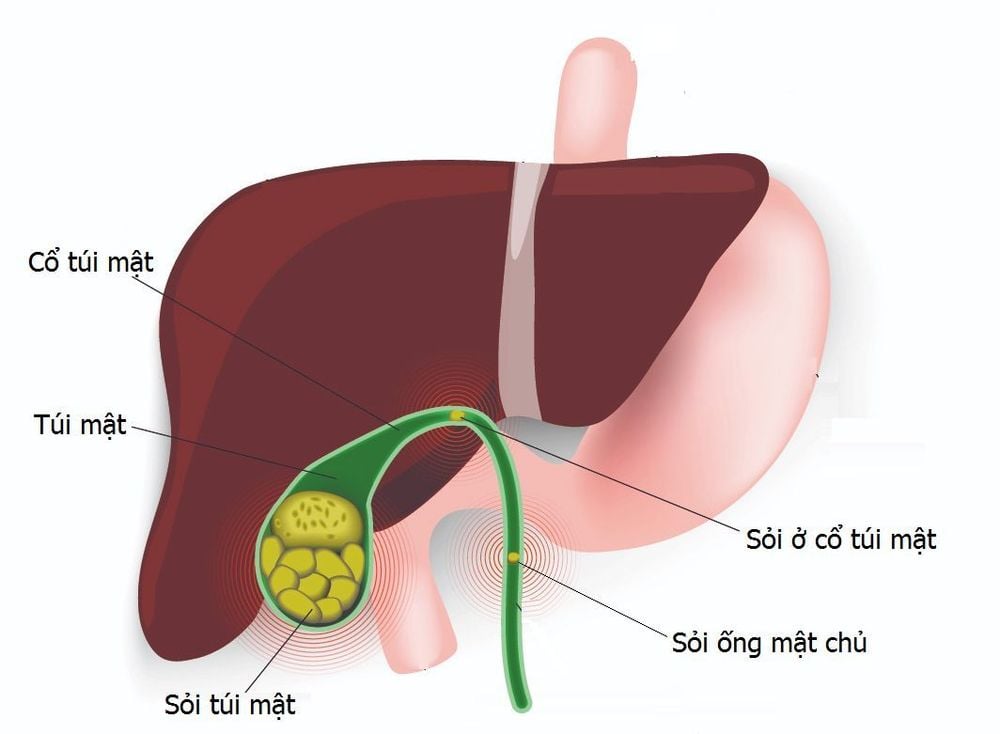
Sỏi viên có thể là nguyên nhân gây sỏi bùn túi mật
3. Manifestations of gallbladder sludge
Patients with gallbladder sludge often go undetected while the disease progresses quietly and quietly. Besides, the disease also has symptoms similar to liver or digestive diseases, so it is difficult to recognize. Up to 80% of patients do not know they have gallstones, even when they progress to gallstones.
When gallbladder sludge begins to affect other organs, the patient may notice some of the following symptoms:
Sudden right flank pain, especially after eating greasy, fatty foods . The intensity of the pain is not the same, sometimes intense, sometimes dull lasting for several hours. The pain may radiate from the upper abdomen between the shoulder blades and into the lower back. Stomach upset, slow digestion, flatulence, nausea or vomiting. Fatigue, chills, profuse sweating, low-grade fever, yellowing of the skin or eyes. Passing stools that are strange in color, lighter and look like white clay. These manifestations also alarm the gallbladder sludge has become dangerous and can cause some complications such as obstruction of the bile ducts, bile leakage, cholecystitis, acute pancreatitis, ... In That is, acute pancreatitis if not treated promptly can cause shock or even lead to death.
4. Is gallbladder sludge dangerous to health?
As mentioned above, gallbladder sludge can resolve on its own without treatment in some people. However, if they do not go away and progress on their own, they can cause some dangerous complications such as:
Obstruction of the bile ducts: The accumulation of sludge in the gallbladder can block the bile ducts, leading to gallbladder infection and increases the risk of gallstone formation or gallbladder disease. Cholecystitis: Gallbladder sludge remains in the gallbladder for too long, causing bile to stagnate and not circulate, leading to infection and inflammation of the gallbladder. The gallbladder becomes inflamed, causing abdominal pain, nausea, or vomiting. Acute pancreatitis: Acute pancreatitis is a common complication of gallbladder sludge, which is caused by the sludge moving to the pancreatic duct and causing pancreatitis. Gallstones: Gallstones can progress to gallstones and cause severe gallbladder pain. Gallstones, if not detected and treated, can be life-threatening.
5. Is gallbladder sludge curable?
Gallbladder sludge can be diagnosed by the following methods:
Ultrasound: Ultrasound allows to locate the stones in the gallbladder. MRI scan: An MRI scan allows to identify and rule out the causes of gallbladder disease, and at the same time to detect whether gallbladder sludge has progressed and caused complications. Other tests: In addition to ultrasounds and MRI scans, you may have other tests, including blood tests to check your liver function and blood calcium and cholesterol levels. When gallstones are detected, if the patient has no symptoms, there is usually no need for treatment, just pay attention to diet and exercise so that the stones can dissolve on their own.
For cases of gallbladder sludge causing symptoms or related complications, the doctor will prescribe drugs to dissolve the stones or surgery to remove the gallbladder. However, patients still have the possibility of recurrent mud stones.
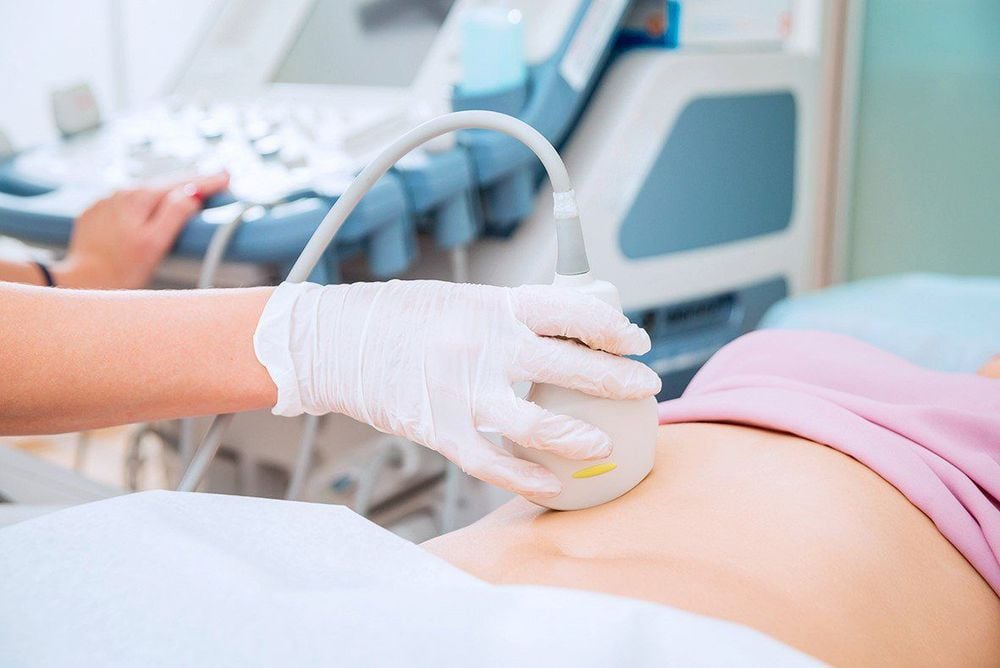
Siêu âm có thể giúp bác sĩ phát hiện ra vị trí sỏi bùn túi mật
6. How to prevent gallbladder sludge?
Gallstone sludge when causing symptoms can seriously affect health. Therefore, to prevent gallbladder stones, it is necessary to pay attention to:
Diet: Limit or avoid foods containing a lot of cholesterol, fat, fried and processed foods, sweet confectionery, starchy foods. Instead, it is necessary to eat more green vegetables, fruits rich in fiber and vitamins, legumes, nuts, whole grains, ... Building a healthy lifestyle: Increase movement, maintain a healthy weight to avoid overweight, diabetes, thereby reducing the risk of gallbladder diseases. Routine deworming: Routine deworming helps prevent bacterial infections of the bile ducts and reduces the risk of gallbladder problems such as gallbladder sludge. Gallbladder sludge can be treated by using lithotripsy or by laparoscopic stone removal, cholecystectomy. However, it is best to prevent gallbladder disease by eating sensibly and leading a healthy lifestyle.
Please dial HOTLINE for more information or register for an appointment HERE. Download MyVinmec app to make appointments faster and to manage your bookings easily.




